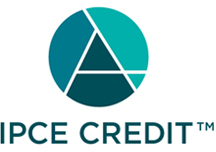
OnDemand: Nutrition-As-Intervention in Chronic Condition Man
Health care spending as a percentage of GDP grew from 5% in 1960 to nearly 19% in 2020. To slow this upward trajectory, narrow networks and access barriers (such as gatekeepers, utilization review and prior authorization) were introduced in the 1990s.
About this On Demand Training
Cost: $99
Duration: One Hour
Nutrition-As-Intervention in Chronic Condition Management
How a Virtual Nutrition Assistant is Bridging Access Gaps and Improving Outcomes by Bringing Expert Knowledge to Patients When and Where They Need it Based on Clinical and Contextual Variables.
Advances in the power, speed and affordability of technology have facilitated development of expert systems that incorporate scientific literature, clinical best practices and other expert knowledge, and (via AI) that virtually deliver clinically and contextually appropriate, accurate and highly personalized expertise to patients where they are and when they need it. One such AI-based expert platform is bridging the nutrition-access gap in oncology and bringing evidence-based nutrition-as-intervention to patients via an SMS-based virtual “dietitian in your pocket” 24/7 “on demand.” Through query response and “push” guidance, the virtual dietitian can identify issues sooner and provide immediate, personalized, clinically proven self-management guidance or referral to an appropriate provider and setting, which reduces cost and improves quality of care and patient experience. By incorporating contextual data such as preferences, social determinants and other practical data, a more personalized, holistic patient experience has resulted in market-leading engagement (65%), utilization (70%) and satisfaction (83%).
What You Will Learn
- Develop knowledge of scientific literature regarding nutrition intervention in chronic disease.
- Recognize the application of Artificial intelligence (AI) and Machine learning (ML) on expert knowledge as it relates to safety, efficacy and impact.
- Interpret how a patient’s context can impact clinical and cost outcomes.
Who Should Attend
- Consultants
- Health care decision makers
- Health care professional
- Health plans
- Health Systems
- Hospitals
- Managed behavioral healthcare organizations
- Population health organizations
- Wellness organization leverages within federal, states, and employers
Faculty

Susan Bratton, MBA
CEO
Savor Health
Susan Bratton, CEO of Savor Health, is a seasoned healthcare and finance executive with a broad range of operations, financial, and strategic experience across the healthcare payor, provider, technology and pharmaceutical sectors. After a 20-year career as a healthcare investment banker, Susan founded Savor Health, a digital health company which provides personalized nutrition interventions to prevent and manage the symptoms of chronic disease. She founded Savor Health after losing a friend to a glioblastoma and, through that experience identifying nutrition as a significant unmet need and nutrition intervention as an effective lever for improving treatment adherence and compliance survival, symptom burden, cost of care, quality of life and mortality and morbidity in cancer care.
Susan has expanded Savor Health’s technology platform to address multiple other chronic conditions including kidney disease, heart disease, and autoimmune conditions, among others. Her passion for helping patients and caregivers extends to her volunteer work at Memorial Sloan Kettering Cancer Center’s pediatric oncology inpatient unit, raising money for cancer charities, and other cancer advocacy-related services. Susan is the author of The Meals to Heal Cookbook, a cookbook of 150 recipes designed to help patients manage and mitigate the side effects of cancer and cancer treatment. Susan is passionate about food, nutrition and her chocolate lab puppy who keeps her on her toes! Susan received a BA from Duke University and MBA from the Darden School of Business at the University of Virginia.
Continuing Education

In support of improving patient care, the National Committee for Quality Assurance is jointly accredited by the Accreditation Council for Continuing Medical Education (ACCME), the Accreditation Council for Pharmacy Education (ACPE), the American Nurses Credentialing Center (ANCC) to provide Interprofessional Continuing Education for the healthcare team.
This educational activity is approved for a maximum of 1.0 AMA PRA Category 1 Credit™.
This educational activity is approved for 1.0 nursing contact hours.*
This live course grants 1.0 Continuing Education Unit (CEU) points for PCMH Certified Content Experts.
* Please note – You must attend the entire program to be eligible for total number of contact hours.
Disclosure of Relevant Financial Relationships
The National Committee for Quality Assurance (NCQA) endorses the Standards of the Accreditation Council for Continuing Medical Education which specify that sponsors of continuing medical education activities and presenters at and planners for these activities disclose any relevant financial relationships either party might have with commercial companies whose products or services are discussed in educational presentations.
For sponsors, relevant financial relationships include large research grants, institutional agreements for joint initiatives, substantial gifts, or other relationships that benefit the institution. For presenters or planning committee members, relevant financial relationships include the receipt of research grants from a commercial company, consultancies, honoraria, travel, or other benefits, or having a self-managed equity interest in a company; or having an immediate family member or partner with such a relationship.
Disclosure of a relationship is not intended to suggest or condone bias in any presentation but is made to provide participants with information that might be of potential importance to their evaluation of a presentation.
Relevant financial relationships exist with the following companies/organizations:
Faculty:
Susan Bratton, MBA: None
Additional Planning Committee Members:
Crissy Crittenden: None
This program was developed in part by NCQA staff.
This program received no commercial support.
Event Type
- Self Paced
Policies and Discounts
Includes the printable registration form, substitutions, transfers/credits and cancellation policies as well as other education policies and discount information.
Read PoliciesPublications & Products
View all NCQA publications and products, including HEDIS manuals, Accreditation standards and NCQA newsletters.
View AllCustomer Support
NCQA Customer Support is available Monday – Friday, 8:30 – 5:00 ET M-F.
Call: 888.275.7585

Have a Team?
Get Virtual Team Training
NCQA can bring virtual or in-person training to you and your team of 20 people or more.

